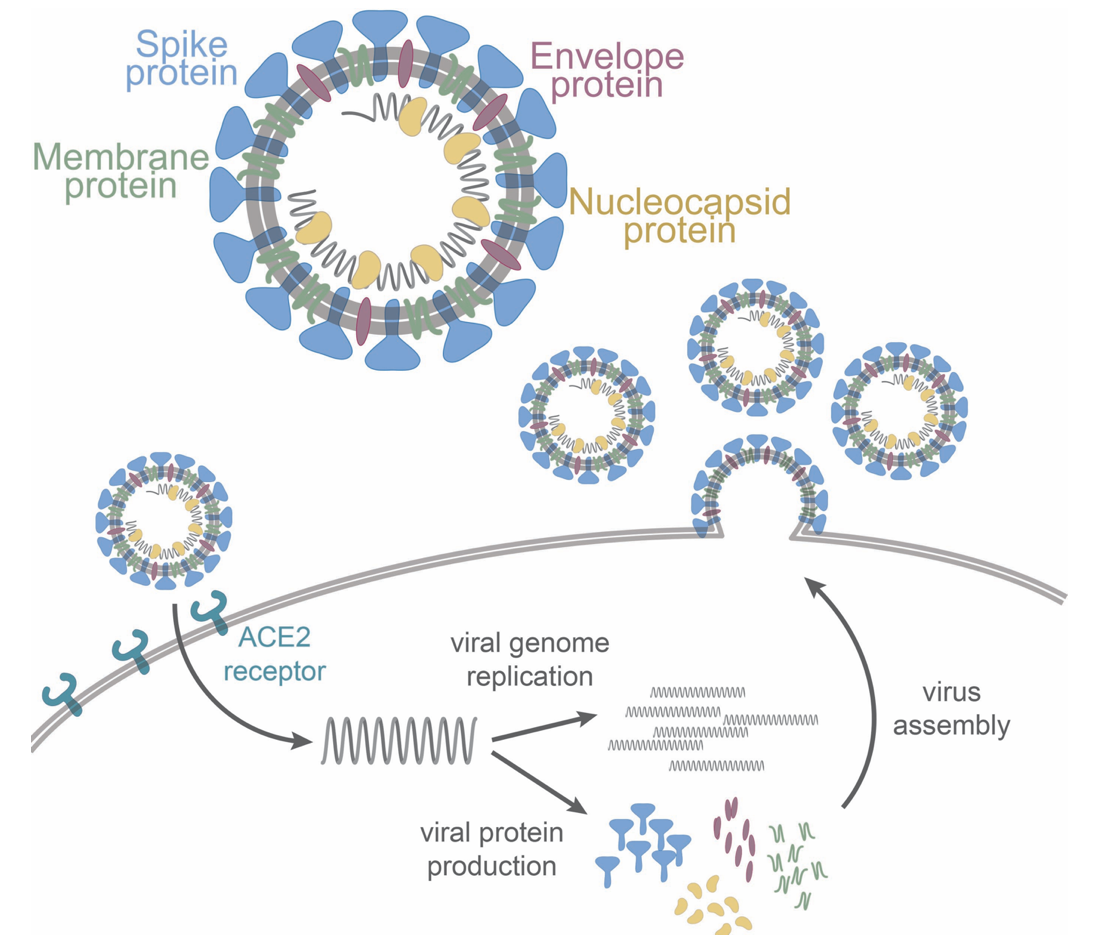BREAKING! COVID-19 Research: Study Discovers That SARS-CoV-2 Uses Human Host Cells To Produce Viral Protein PLpro Which Suppresses Interferon Development
Source: COVID-19 Research Jul 30, 2020 5 years, 4 months, 2 weeks, 6 days, 16 hours, 27 minutes ago
COVID-19 Research: German researchers from Goethe University, University Hospital Frankfurt and Max Planck Institute of Biophysics have discovered a compound to inhibit the SARS-CoV-2 coronavirus from using human host cells to produce the vital protein called PLpro, hence blocking the virus replication processes and also strengthening the anti-viral immune response at the same time as it has been found that the same viral protein also suppresses the development of type 1 interferons in the human host.

The research findings are published in the journal Nature.
https://www.nature.com/articles/s41586-020-2601-5
It has been found that when the SARS-CoV-2 virus penetrates human cells, it lets the human host cell produce proteins for it. One of these viral proteins, called PLpro, is essential for the replication and rapid spread of the virus.
Interestingly in the case of an infection, the SARS-CoV-2 virus must overcome various defense mechanisms of the human body, including its non-specific or innate immune defense. During this process, infected body cells release messenger substances known as type 1 interferons. These attract natural killer cells, which kill the infected cells.
However it has been discovered that one of the reasons the SARS-CoV-2 virus is so successful and thus dangerous is that it can suppress the non-specific immune response. In addition, it lets the human cell produce the viral protein PLpro (papain-like protease). PLpro has two functions: It plays a role in the maturation and release of new viral particles, and it suppresses the development of type 1 interferons.
The study team has now been able to monitor these processes in cell culture experiments. Moreover, if they blocked PLpro, virus production was inhibited and the innate immune response of the human cells was strengthened at the same time.
The detailed molecular dynamics calculations of Dr Laura Schulz and Dr Ahmad Reza Mehdipour at the Max Planck Institute for Biophysics and the Max Planck Computing and Data Facility in Garching have made a major contribution to elucidating the underlying mechanism and better understanding of the binding of the inhibitor candidates.
The research team identified a compound called GRL-0617 which would be an ideal inhibitor of the production of the viral protease PLpro through the binding studies.
Dr Ivan Đikić a co-researcher from the study team explained to Thailand Medical News, "We used the compound GRL-0617, a non-covalent inhibitor of PLpro, and examined its mode of action very closely in terms of biochemistry, structure and function. We concluded that inhibiting PLpro is a very promising double-hit therapeutic strategy against COVID-19. The further development of PLpro-inhibiting substance classes for use in clinical trials is now a key challenge for this therapeutic approach."
The study team also came across another interesting finding from the research in that the viral protein PLpro of SARS-CoV-2 cleaves off ISG-15 (interferon-stimulated gene 15) from cellular proteins with a higher level of activity than the SARS equivalent, which leads to greater inhibition of type I interferon product
ion. This is concordant with recent clinical observations which show that COVID-19 exhibits a reduced interferon response in comparison to other respiratory viruses such as influenza and SARS.
In order to understand in detail how inhibiting PLpro stops the virus, researchers in Frankfurt, Munich, Mainz, Freiburg and Leiden have worked closely together and pooled their biochemical, structural, IT and virological expertise.
Dr Sandra Ciesek, Director of the Institute of Medical Virology at University Hospital Frankfurt, explains that the papain-like protease is an extremely attractive anti-viral goal for her as a physician because its inhibition would be a "double strike" against SARS-CoV-2.
The study team is next planning more detailed cellular studies involving the identified inhibitor GRL-0617 before progressing to animal vivo studies.
For the latest
COVID-19 Research developments, keep logging to Thailand Medical News.
